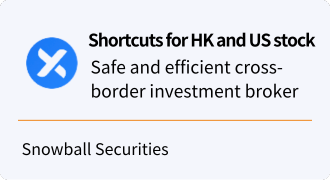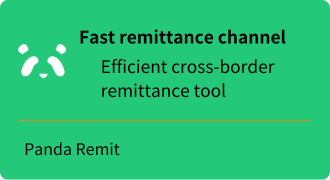Mastering Hong Kong Stock Market Hours: A Guide for Investors
[DISCLAIMER] This article is for educational and informational purposes only and does not constitute investment advice. Readers should consult with qualified financial professionals before making any investment decisions.
In the ever-changing Hong Kong stock market, understanding the “rules of the game” is the key to winning. As a senior quantitative trading expert, I often receive questions about the trading hours of Hong Kong stocks. In this article, we will discuss the trading hours and market closure arrangements of Hong Kong stocks, which will help you grasp the investment opportunities. Whether you are a novice or an experienced trader, having this information will enhance your trading strategy. Are you ready? Let's start this journey to uncover the trading hours of Hong Kong stocks!
Ⅰ. Hong Kong Stock Trading Hours: Race Against Time
Regular Trading Hours
The regular trading hours of Hong Kong stocks can be regarded as an example of “sunrise and sunset”. Each trading day is divided into morning and afternoon sessions:
- Morning Session: 09:30 - 12:00 (Hong Kong time)
- Afternoon session: 13:00 - 16:00 (Hong Kong time)
This arrangement is quite interesting, which not only gives investors a chance to take a small break, but also provides a window of time for information digestion and strategy adjustment in the midday.
Bidding Session: The Morning and Evening of the Markets
However, as any true “master trader” knows, there is much more to the Hong Kong stock market than this. Before and after the official market open, there are several key bidding periods. 1:
- Pre-market session: 09:00 - 09:30
- 09:00 - 09:15: Entry of buy and sell orders
- 09:15 - 09:20: You can only modify or cancel buy and sell orders.
- 09:20 - 09:28: Random market close
- 09:28 - 09:30: Announcement of reference equilibrium price and statistical data
- Closing Bidding Session: 16:00 - 16:10
- 16:00 - 16:06: Input buy and sell orders
- 16:06 - 16:08: Only modify or cancel buy and sell orders.
- 16:08 - 16:10: Random market close
These periods are the “dawn” and “dusk” of the market and are often rich in trading opportunities and risks.
Extended trading hours: a boon for night owls
For those investors who like to “work at night”, Hong Kong stocks also provide extended trading hours:
- 17:15 - 03:00 (next day) (Hong Kong time)
This session is mainly for some derivative products, providing more flexible trading hours for global investors.

Ⅱ. Hong Kong Stock Market Closing Arrangement: A “Long Vacation” for Investors
Statutory Holidays: Celebrate with Hong Kong
The closing days of Hong Kong stocks mainly follow the statutory holidays in Hong Kong, including:
- New Year's Day (January 1 every year)
The market is closed for one day; - Chinese New Year (1st to 3rd day of the Lunar New Year every year)
Closed for three days; - Ching Ming Festival (April 5 each year)
The market is closed for one day; - Good Friday (the first Friday after the full moon on the vernal equinox, and two days before Easter).
The market is closed for one day. - Easter (the day after the first Sunday following the full moon of the spring equinox each year)
The market is closed for one day - Buddha's Birthday (every year on the eighth day of the fourth lunar month)
The market is closed for one day - Labor Day (May 1 every year)
Closed for one day - Dragon Boat Festival (the fifth day of the fifth lunar month every year)
Closed for one day - Hong Kong SAR Establishment Day (July 1 every year)
Closed for one day - National Day (October 1 every year)
Closed for one day - Chung Yeung Festival (the ninth day of the ninth month of the lunar calendar every year)
Closed for one day - The day before Christmas (December 24 every year)
No lunch and after-hours trading - Christmas Day (December 25 every year)
Closed for one day - First Sunday after Christmas Day
No lunch and after-hours trading - December 31st of each year
No lunch and after-hours trading
It is worth noting that the exact dates of some holidays may change from year to year, investors should pay attention to the official announcement of the HKEx.
Special Circumstances: Typhoons and Black Rainstorms
Being a coastal city, Hong Kong's weather factors may also affect trading. Hong Kong stocks may be temporarily closed when the following conditions occur:
- Typhoon Signal No. 8 or above
- Black Rainstorm Warning
This is like a soccer match encountering heavy rain and the referee has to suspend the game. Investors need to pay close attention to the weather forecast from the Hong Kong Observatory and relevant announcements from the HKEx.
Ⅲ. The Strategic Significance of Trading Hours
Understanding the trading hours and closure arrangements of Hong Kong stocks is not only to know when you can place an order, but more importantly, it helps investors to formulate a more accurate trading strategy.
- Information Arbitrage: Use the lunch break to digest news and prepare for the afternoon session.
- Cross-market arbitrage: Combine the trading hours of A-shares and U.S. stocks to find cross-market arbitrage opportunities.
- Hedging strategy: Adjust positions in time for possible market volatility before typhoons or rainstorms.
For example, I once observed an interesting phenomenon: major positive news announced during the midday break will often bring significant price jumps at the opening of the afternoon session. A savvy investor can take advantage of this time lag to develop an entry strategy.
Ⅳ. A Global Perspective on Hong Kong Stock Trading Hours
In a globalized financial market, the trading hours of Hong Kong stocks are uniquely strategic:
- Partial overlap with Mainland A-shares, facilitating the linkage of the two markets
- It is exactly between the European closing and the US opening, which serves as a bridge between the East and the West.
- The extended trading session covers most of the US stock trading hours, which is convenient for global investors.
This schedule makes Hong Kong stocks a truly “all-weather” market, providing investors with a wealth of cross-market trading opportunities.
Ⅴ. How to utilize trading time for new investors
For new investors, my suggestions are as follows:
- Make a personal “trading calendar” with all trading hours and closing days. 2.
- make it a habit to check the market 15 minutes before the opening and 15 minutes before the closing. 3. utilize the lunch breaks.
- Use the lunch break to review your morning trades and adjust your strategy for the afternoon.
- Pay attention to the official announcements of the HKEx to keep abreast of any temporary changes in trading hours.
Remember, in the investment world, time is money. Master the trading hours, and you have mastered one of the keys to victory.
Ⅵ. Conclusion
The trading hours and market closure arrangement of Hong Kong stocks may seem simple, but it is a hidden mystery. It not only affects the timing of our orders, but also shapes the rhythm and characteristics of the entire market. As investors, we need to:
- memorize the trading hours and internalize them as part of our investing habits.
- be flexible in utilizing the characteristics of different time periods, such as price discovery during early morning bidding and information digestion during the midday break.
- develop a sense of timing for global markets and place Hong Kong stocks in a broader investment perspective.
- maintain a high level of alertness to market announcements and weather warnings for possible temporary market closures.
- Continuously learn and adjust so that your trading strategy is perfectly aligned with the market pace.
Looking ahead, with the development of financial technology and further integration of global markets, the trading schedule of Hong Kong stocks may undergo new adjustments to accommodate the trend of 24/7 globalized trading. This will bring new opportunities and challenges to investors.
As an investor, how do you view and utilize the trading hours of Hong Kong stocks? Do you have any experience of benefiting from a precise grasp of trading hours? Feel free to share your insights and experiences in the comment section, so that we can capture the essence of investment together in the river of time!







